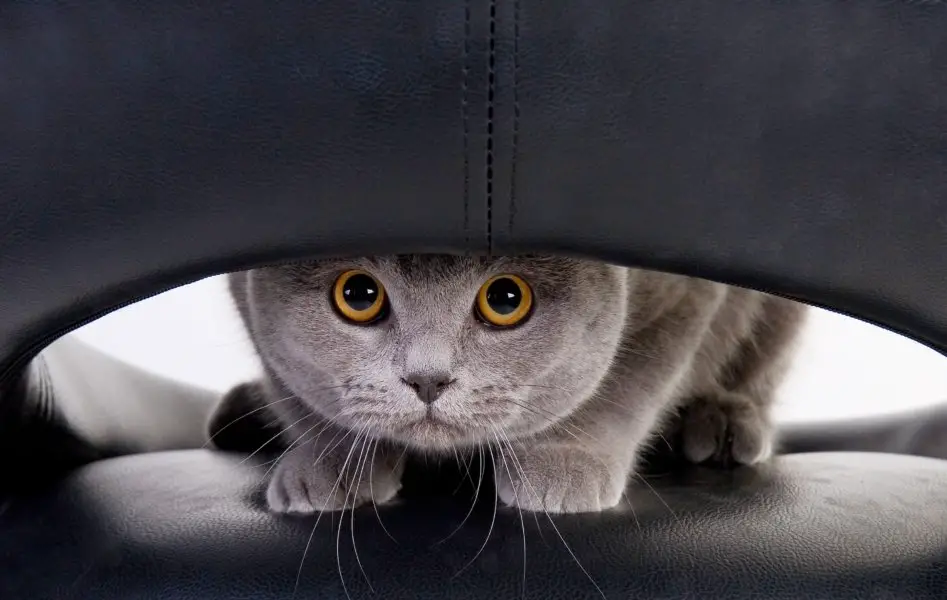Recognizing and Dealing with Stress in Your Cat
Guest post by veterinarian and CEO of CalderVets, Stuart Cooke
Did you know cats can experience stress, just like us? It’s not uncommon for cats to suffer from stress, particularly when they live in a house with other felines. But there are ways you can help to modify cat behavior according to Stuart Cooke, Veterinarian and CEO of leading Yorkshire-based Calder Vets.
Monitoring Cat Behavior: The Signs of Stress
We often speak to cat owners who are worried about their cat’s change in behavior. Oftentimes, the animal is acting differently due to stress in the home.
Watch for the following changes to cat behavior, which are likely indicators of stress in your cat:
- Withdrawn
- Hiding from you and other animals
- Lack of willingness to interact with you and other animals
- Inappropriate urination or excessive marking
- Excessive/obsessive grooming (you may notice patches of fur that are missing)
- Fighting
Stress and Illness: Protect Your Cat
If you notice any change in your cat’s behavior, always take your cat to the vet first to rule out any physical causes. If your vet gives your cat a clean bill of health and indicates that your cat is suffering from stress, there are things you can do to ease their emotional upset.
Why Do Cats Get Stressed?
There are a number of reasons that a cat may become stressed. A few common reasons include:
Bullying from other cats
Your pet’s stress could be caused by bullying. Cats can be manipulative in certain situations and actually use psychological warfare on each other long before the physical fight breaks out.
Change of house layout/circumstances
Cats are very sensitive to their surroundings. They can become stressed when the layout of their living area changes, so be sure that their favorite toys and sleeping areas are still safe areas and easy for them to find.
They can also become stressed if there is a change to the living arrangement, such as someone familiar moving out or someone new moving in.
Travel
Cats are notoriously afraid of traveling. They can become stressed if they have to be moved anywhere, even if it’s just a routine trip to the vets.
Introduction of new pets
Bringing a new pet into the home can cause your cat to become stressed or agitated.
How to Reduce Stress in Cats
If your cat is stressed because of another cat in the home, try reducing the monopoly of one cat by changing the environment. Make sure each one of your pets has their own litter tray and their own food bowl and put them on different levels of the house if possible. Providing multiple food and water bowls spread around the home can help the nervous cat find a place where she feels safe. This strategy limits an aggressive cat’s territorial behavior because it is unable to monopolize multiple food bowls or litter boxes simultaneously, if they’re carefully placed around the home.
You can also try using plug-in pheromone diffusers around your home which can help to modify cat behavior. There are many brands available; we recommend Comfort Zone Feliway Diffuser Kit for Cat Calming.
Provide multiple hiding places around the home and “escape routes” for skittish cats. Items such as cat flaps, cat trees, perching shelves, etc. should be readily available wherever possible. Finally, if you have an aggressive cat, consider “belling” the cat so that he or she cannot sneak up and surprise your other unsuspecting cat. Belling a cat simple means that you’re placing a comfortable collar with a bell on the aggressive cat or if you already have a collar that your cat loves (or doesn’t mind) you can purchase bells to add-on.
Stuart Cook,CEO, Calder Vets
Stuart graduated from the Royal Veterinary College (London) in 2002. He worked in small animal practices in North and West Yorkshire for five years before completing his certificate in Small Animal Surgery in 2007. Stuart worked in the orthopaedic referrals department at Calder Vets from 2008 to 2012. He became a Director at Calder Vets in 2010 and Managing Director in 2012. Stuart is now Chief Executive Officer of Calder Vets Ltd.This blog contains affiliate links. For more information about third-party advertising on this site, please click here.
